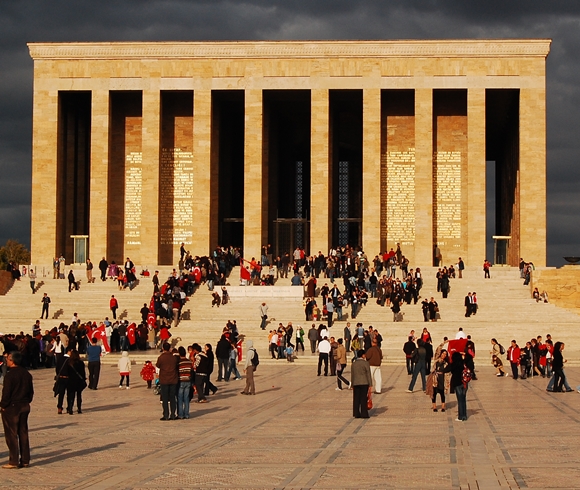Turkey, where ancient history and modern culture collide, is one of the most exciting and rewarding destinations for TESOL teachers. From bustling cities like Istanbul and Ankara to tranquil coastal towns, teaching English here offers an adventure filled with diverse experiences. Known as the bridge between Europe and Asia, Turkey’s unique position not only connects continents but also cultures, making it a fascinating place to live, work, and inspire students.
Why Teach English in Turkey?
Turkey has a growing demand for English teachers as globalization continues to impact education and business. Whether you teach in private schools, universities, or language centers, you’ll find enthusiastic learners eager to master English for academic success, tourism, or career advancement. Salaries are competitive, and the cost of living is relatively low, allowing teachers to live comfortably while exploring this beautiful country.
The best part? Turkish hospitality. There’s a saying in Turkey: “Misafir bereketlidir”—guests bring blessings. As a teacher, you’ll often be invited to homes for steaming cups of çay (tea) and plates piled with delicious baklava or homemade börek. Teaching English here isn’t just about lessons; it’s about connection.
Little-Known Fun Facts About Turkey
- Home of the World’s First University?
Before Oxford or Harvard, the ancient city of Harran in southeastern Turkey hosted the world’s first university. Dating back to the 8th century, it was a hub of science, philosophy, and astronomy. TESOL teachers in Turkey stand on the shoulders of centuries-old educational tradition. - Where Cats Rule the Streets
If you’re a cat lover, Turkey is paradise. Cities like Istanbul are famous for their street cats, treated almost like royalty. Locals feed and shelter them, with some cafes and shops offering cozy corners for feline guests. What better icebreaker for students than discussing their favorite neighborhood cat? - The Whirling Dervishes of Konya
Ever seen someone “dance” as a form of prayer? The Sufi Whirling Dervishes, originating in Konya, turn in mesmerizing circles to achieve spiritual connection. For ESL classes, this offers an opportunity to introduce cultural idioms like “to spin a story” or practice new vocabulary around movement and meditation. - Two Continents, One Commute
Istanbul is the only city in the world that straddles two continents. Imagine telling your friends you live in Asia but teach in Europe—or vice versa! Many residents take ferries across the Bosphorus Strait daily, enjoying breathtaking views of minarets, palaces, and seagulls along the way. - A Surprising Source of Santa Claus
Saint Nicholas, the inspiration for Santa Claus, was born in the ancient city of Myra (modern-day Demre, Turkey). While teaching Christmas vocabulary, you can impress your students by saying, “Did you know Santa was Turkish?”
Practical Tips for Teaching in Turkey
- Tailor Your Teaching Style
Turkish students, like most learners, respond well to interactive and engaging lessons. Incorporate games, real-life role plays, and visuals. Topics like Turkish cuisine (kebabs, anyone?) or cultural festivals can help make English learning relatable and fun. - Cultural Sensitivity is Key
Turkey’s culture is a mix of tradition and modernity. While some areas are quite progressive, others hold traditional values. Build trust and rapport by learning basic Turkish greetings and customs. Simple phrases like “Merhaba” (Hello) and “Te?ekkür ederim” (Thank you) go a long way. - Use Turkey’s Rich History for Content
Incorporate Turkey’s landmarks into your lessons to engage students. For example:- Create a reading exercise about the ancient city of Ephesus, once home to the Temple of Artemis, one of the Seven Wonders of the Ancient World.
- Use visuals of Cappadocia’s fairy chimneys to inspire descriptive writing.
- Design a role-play activity where students “guide tourists” through the Grand Bazaar, one of the oldest covered markets in the world.
- Teach “English for Tourism”
Turkey’s tourism industry thrives, so teaching English for hospitality is highly relevant. Focus on practical skills like ordering food, giving directions, and handling customer service. Students will appreciate how immediately useful these lessons are. - Keep Classes Fun and Flexible
Turkish students are lively and social. Break up lessons with group activities, storytelling, or music—Turkish pop and folk songs are great for teaching vocabulary and pronunciation.
Living in Turkey: The TESOL Teacher’s Experience
Life in Turkey is vibrant, affordable, and full of surprises. A typical day might begin with a strong Turkish coffee, followed by a short walk through historical neighborhoods buzzing with life. After classes, you could relax in a traditional Turkish hammam (bath) or take a leisurely stroll along the coastline of cities like Izmir.
The cost of living varies depending on location, but even in Istanbul, teachers can find affordable housing and dining options. Street food, like simit (sesame bread rings) or pide (Turkish pizza), costs just a few lira but packs big flavor.
Final Thoughts
Teaching English in Turkey is a journey like no other. You’re not just teaching a language—you’re sharing stories, bridging cultures, and leaving a lasting impact on eager learners. From lively cities to ancient ruins, from tea-filled afternoons to weekend adventures, Turkey offers a tapestry of experiences for TESOL teachers ready to explore.
With every lesson taught, you’ll gain something, too—a deeper appreciation for Turkey’s rich heritage, its warm people, and its endless opportunities for connection. Whether you’re admiring the Blue Mosque at sunset or sharing laughter with your students, you’ll discover that Turkey isn’t just a destination; it’s an unforgettable chapter in your teaching adventure.



